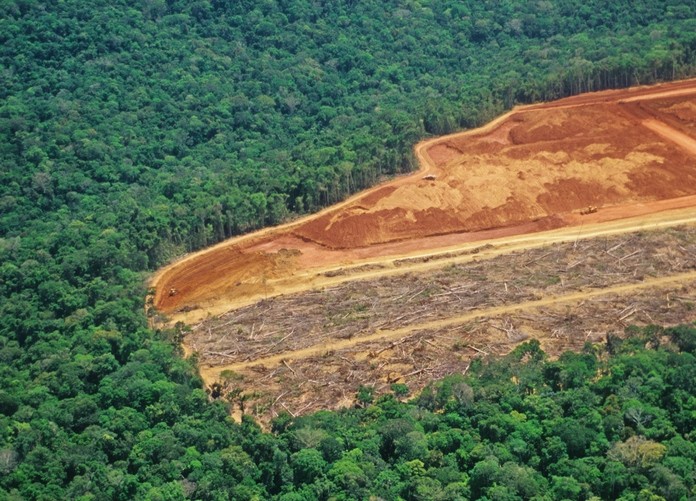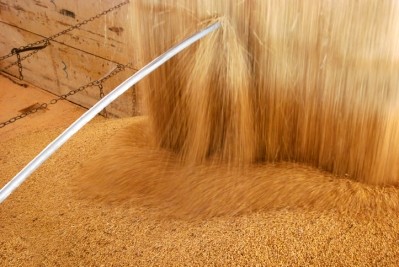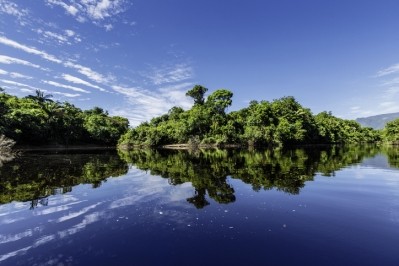Industry groups still find fault with proposed EU deforestation law

But, nonetheless, they warn about the trade distorting effect of certain aspects of the rules as they stand.
The European Commission (EC) originally published its proposal for the regulation in November 2021; its goal is to ensure that is aimed at ensuring that products derived from certain commodities, namely coffee, cocoa, palm oil, soya, beef and wood, which are consumed within the EUI or exported from the bloc, have not caused deforestation or forest degradation during their production.
Tuesday this week saw the Council adopt its negotiating position on the proposal. Among other aspects, it agreed to set mandatory due diligence rules for all operators and traders who place, make available or export such products from the EU market. The rules also apply to a number of derived products such as leather, chocolate and furniture.
However, it simplified and clarified the due diligence system to avoid duplication of obligations and reduce administrative burden for operators and member states’ authorities. It also added the possibility for small operators to rely on larger operators to prepare due diligence declarations.
“The innovative text that we have adopted will make it possible to combat deforestation, within the EU but also outside of it. This is a major step forward which also illustrates our ambition for the climate and for biodiversity,” commented Agnès Pannier-Runacher, French minister for energy transition.
EU grain, oilseed and feed trade bodies, COCERAL, FEDIOL, and FEFAC welcomed the amendments made by the Council on due diligence but, in a joint statement, said they remain concerned that no significant changes were put forward on traceability, cooperation with third countries, and chain of custody.
Chain of custody challenges
While the EC's proposal does not explicitly refer to the required chain of custody for delivering deforestation-free products, its inclusion of “risk of mixing with products of unknown origin or produced in areas where deforestation or forest degradation has occurred or is occurring” as part of an operator’s risk assessment presupposes that deforestation-free products cannot be physically mixed with products that have not been verified as “deforestation-free”, noted those organizations.
Requesting a separation of flows of verified and non-verified products, throughout all supply chain stages, will have a disruptive, trade distorting effect on global soy supply chains to the EU while undermining deforestation-free commitments and efforts already undertaken in high-risk areas, argue the industry representatives.
“It would require building new infrastructure - country elevators, silos, crushing lines or plants, port loading - at such prohibitive costs that operators in most large ports are likely to abstain from the investment. As a result, supply flows into the EU are expected to be considerably reduced and to switch from high risk to low risk areas, abandoning all positive engagement and incentives to farmers to halt deforestation.”
The trade groups argue that mass balance, to date, has supported demand for deforestation-free production in high-risk areas and, therefore, incentivized the halting of deforestation.
Traceability concerns
The Council has also maintained the EC's proposal to require traceability to plot information for all volumes sourced by operators.
FEFAC and the other groups cautioned, though, that even if some farmers in producing countries can comply with that requirement, collecting geolocation data of smallholders and co-operatives faces important technical, logistical, legal, and governance challenges, which cannot be addressed by companies alone.
“If such challenges are not solved under a multi-stakeholder approach involving local governments, local industry actors, EU operators, the EC, and NGOs, companies will not be able to collect reliable geolocation to plot information for the majority of smallholders currently part of their supply chains.
“To support rapid implementation and provide equivalent assurances, we call for traceability to production area, to be checked by satellite monitoring and checks on the ground as part of an operator’s due diligence.”
They also urged the EC to tackle such hurdles through Forest Partnerships, development assistance, and any other required means before implementing and enforcing the geolocation to plot requirement of the new legislation.
Given that compliance with certain requirements of the regulation will prove challenging for some actors in producing countries, the industry bodies are also concerned that the chapter on cooperation with third countries was not strengthened by the Council in order to address those challenges.
“To avoid the exclusion of a large portion of producers from supply chains into the EU as well as any shortages in the provision of relevant commodities, targeted cooperation and development assistance, as well as financial incentives, will be required to enable the establishment of national traceability systems, proper land tenure regulation, deforestation-prevention through capacity and knowledge building for environmentally and economically sustainable and deforestation-free agriculture.”
Next steps
The European Parliament (EP) is expected to adopt its position on the deforestation regulation in the plenary session of September 12, 2022. Once its position has been voted, it will then engage with the Council in interinstitutional negotiations to agree on the final text.
A spokesperson for the Council told FeedNavigator: “The outcome of their agreement will then be formally adopted by both institutions and become EU law. It’s difficult to estimate the exact timing but this will take a few months at least.”














